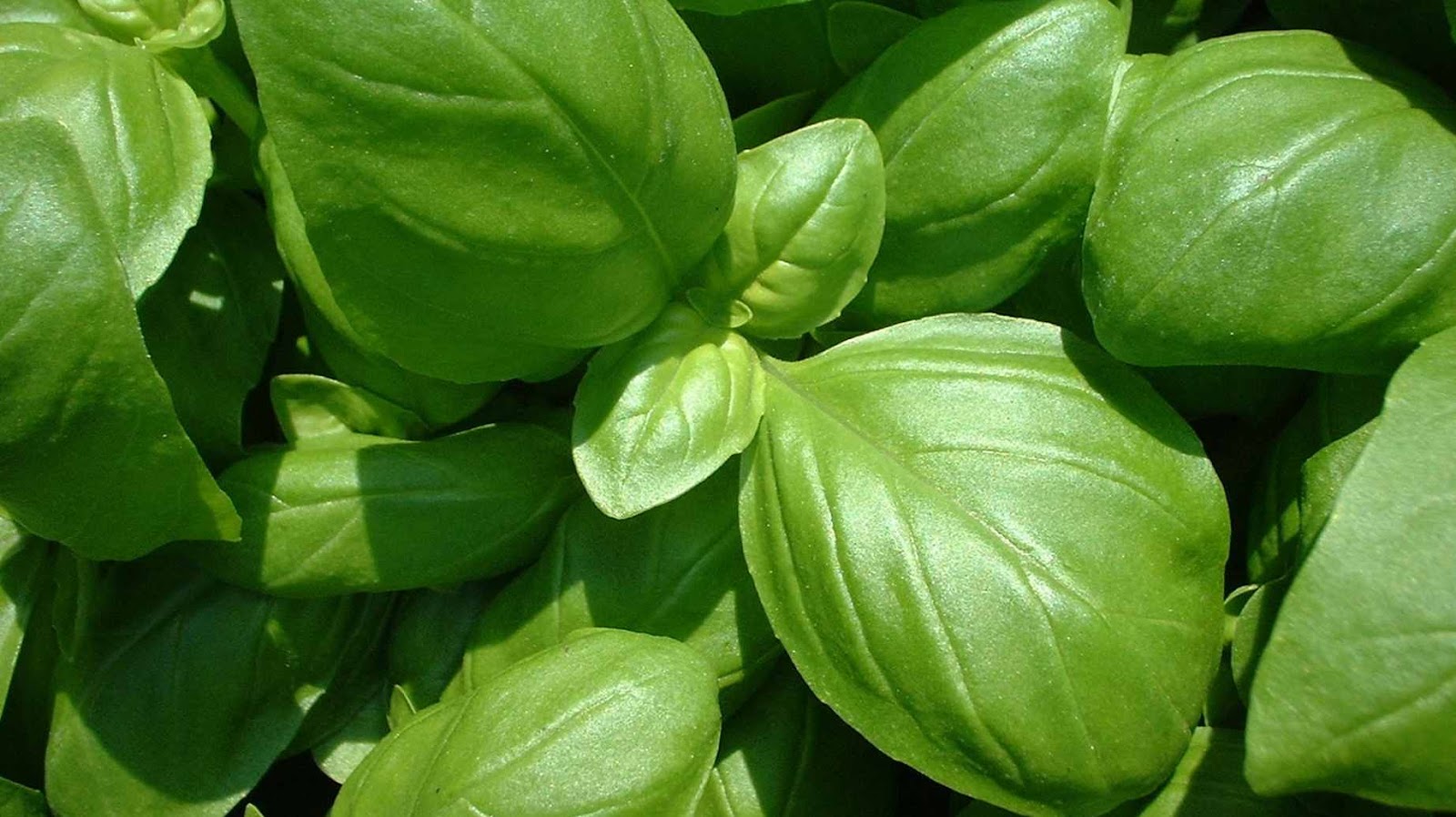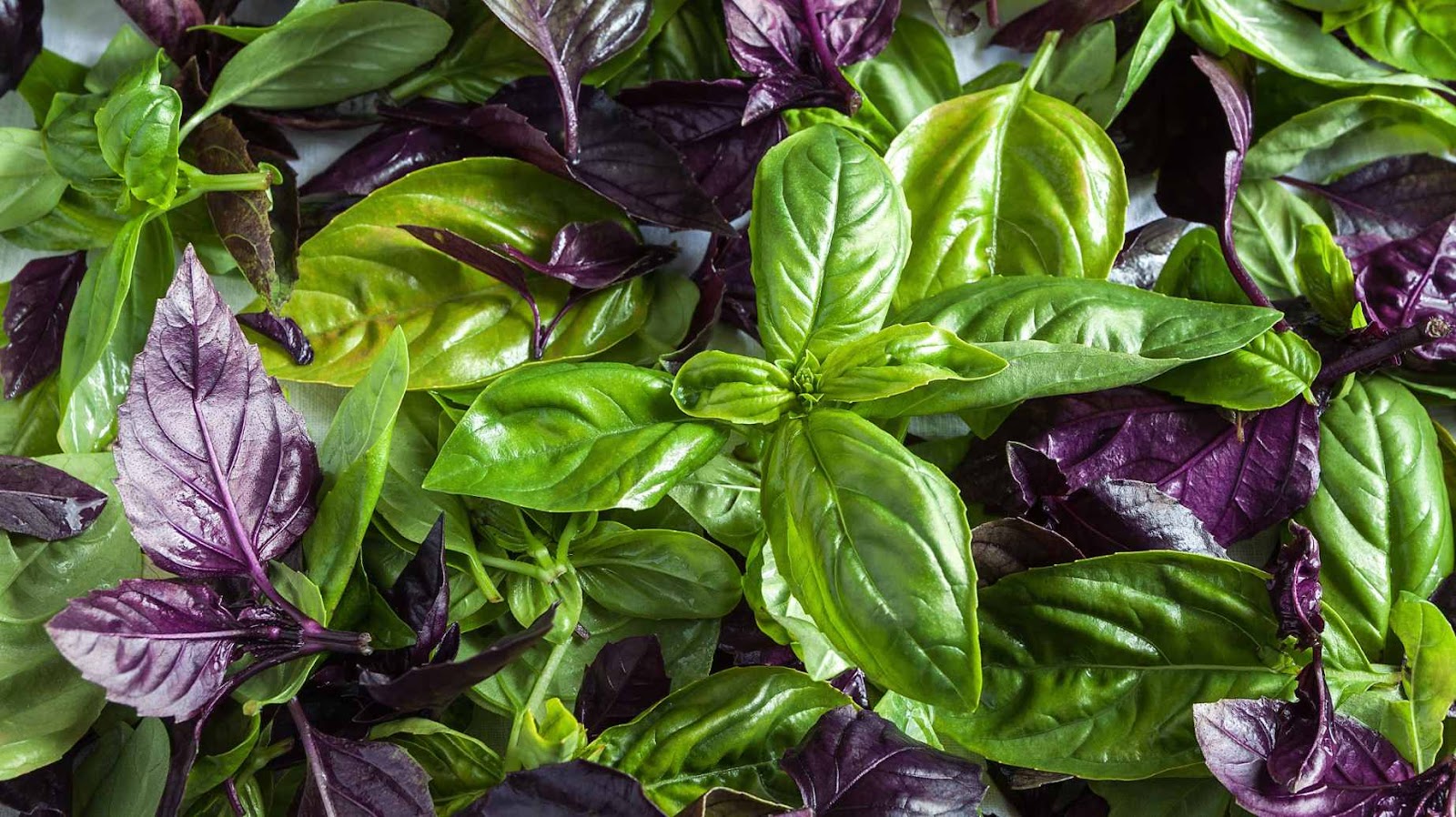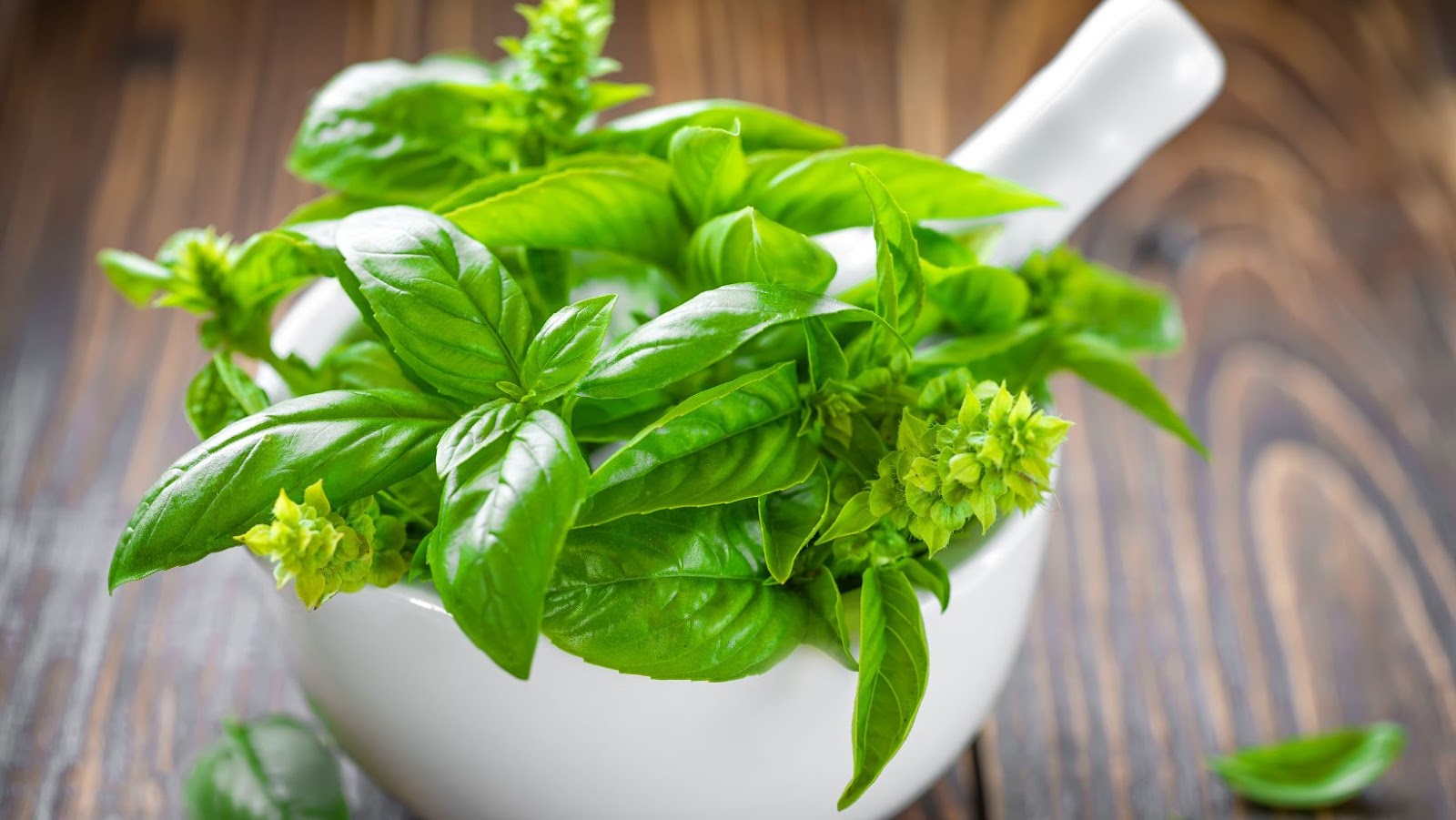There are so many benefits to basil, it’s hard to know where to start! This amazing herb has been used for centuries in traditional medicine, and more recently, in natural health and beauty products. Not only is basil packed with nutrients, but it also has powerful antibacterial and anti-inflammatory properties.
In this blog, we’ll explore all the wonderful ways you can use basil to improve your health and beauty regimen. From making your own homemade Basil-Infused Oil to using it as a natural acne treatment, we’ll show you how this versatile herb can work wonders for your skin, hair and overall health. So let’s get started!
What is Basil?
Basil is a member of the mint family and its scientific name is Ocimum basilicum. It is also sometimes called Saint Joseph’s Wort and Sweet Basil. There are many different types of basil, which include: bush basil, sweet basil, Thai basil, lemon basil, holy basil, and much more. This herb is native to India and other tropical countries. It has a strong flavor and smell that many people love. Basil is most commonly used in Italian cuisine, but it also goes well with tomatoes, garlic, eggplant, peppers, and other flavorful foods. This herb can be used in many different dishes including pastas, pizzas, salads, soups, sauces, and much more. Fresh basil leaves can be eaten raw or cooked. They can also be chopped up and added to recipes at the end of cooking to preserve their flavor. Basil can also be dried or frozen for later use.
The Benefits of Basil
Basil is a delicious and nutritious herb that can be used in many different dishes. But did you know that basil also has a number of health benefits?
Basil is a good source of vitamins A and C, as well as iron and calcium. Vitamin A is important for vision and immune function, while vitamin C helps to protect cells from damage and promotes healing. Iron is necessary for the production of hemoglobin, which carries oxygen in the blood, and calcium helps to build strong bones. Basil also contains an antioxidant called beta-carotene, which may help to protect against some types of cancer. In addition, basil essential oil has been shown to have antibacterial and antifungal properties. So how can you take advantage of all these benefits? The best way is to add basil to your diet in as many ways as possible. Try using it in place of other herbs in recipes, or adding it to salads, pasta dishes, or soups. You can also try growing your own basil plant so you always have fresh basil on hand.

How to Keep Basil
Basil (Ocimum basilicum) is a popular culinary herb that is used in a variety of dishes, from pesto to tomato sauce. But basil is more than just a delicious addition to your favorite recipes. This fragrant herb also offers a number of health benefits.
Basil is a good source of vitamins A and C, as well as magnesium, iron, and calcium. It also contains antioxidants that can help protect your cells from damage. There are many ways to enjoy basil. You can add it to salads, soups, stews, or pasta dishes. You can also use it to make pesto or other sauces. If you’re growing your own basil, you can dry or freeze it for later use.
To keep basil fresh for as long as possible, store it in a glass of water in the fridge. Change the water every few days and trim the stems if they start to become limp.
The Best Way to Use Basil
Basil is most commonly used in Italian cuisine, but it has a number of other uses as well. The herb can be used to make tea, and it is also a key ingredient in pesto sauce. Basil is a good source of vitamins A and C, as well as iron and calcium. It also contains antioxidants that can help to boost the immune system.
If you are growing basil plants, you can harvest the leaves at any time. However, if you are using store-bought basil, it is best to use it within a few days of buying it. Basil leaves can be stored in a plastic bag in the fridge for up to a week.
Recipes With Basil
Basil is delicious in so many recipes! Here are some of our favorites:
-Basil and roasted cherry tomato bruschetta
-Basil, mozzarella, and balsamic tomatoes
-Basil pesto pasta with grilled chicken
-Thai basil chicken stir fry
-Grilled salmon with basil mayonnaise
-Watermelon basil salad
-Roasted strawberry basil ice cream

Health Benefits of Basil
Basil is not only a delicious herb that can add flavor to many foods, but it also has several health benefits.
Basil contains antioxidants, which can help protect the body against cell damage. These antioxidants may also help to reduce the risk of some chronic diseases, such as heart disease and cancer. Basil is a good source of magnesium, which is a mineral that is important for many bodily functions, including muscle contraction, nerve function, and blood sugar control. Basil is also a good source of iron and calcium.
Basil has anti-inflammatory properties and may be helpful in managing conditions like arthritis and asthma. Basil may also help to improve blood circulation and protect against bacterial infections.
To get the most health benefits from basil, it is best to consume it fresh. However, basil can also be found in dried or powdered form in some stores.
Different Types of Basil
While there are numerous types of basil, the two most popular ones are sweet basil and Thai basil. As the name suggests, sweet basil has a slightly sweeter flavor while Thai basil has a more anise-like flavor. If you’re not sure which one to use, check out this guide to the different types of basil.
-Lemon basil: This type of basil has a citrusy flavor with a hint of mint. It’s perfect for summer dishes like salads, pastas, and desserts.
-Camphor basil: Camphor basil has a strong camphor flavor with hints of mint and cloves. It’s often used in Thai and Vietnamese dishes.
-Cinnamon Basil: Cinnamon Basil has a warm, spicy flavor with hints of cloves and anise. It pairs well with fruits and desserts.
-Holy Basil: Holy Basil has a strong licorice flavor with hints of pepper and mint. It’s traditionally used in Indian cuisine for curries and soups.
